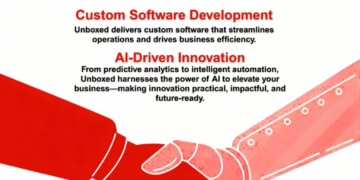Introduction
Singapore stands at the forefront of corporate decarbonization, with businesses across sectors implementing innovative strategies to reduce carbon emissions and align with the nation’s ambitious sustainability goals. This article explores how leading enterprises in Singapore are adopting corporate sustainability solution in Singapore to achieve net-zero emissions, highlighting actionable strategies and key service providers facilitating this transformation.
Understanding Corporate Decarbonization in Singapore
Corporate decarbonization refers to the systematic reduction of greenhouse gas (GHG) emissions within a company’s operations and value chain. In Singapore, this aligns with the national commitment to achieve net-zero emissions by 2050, as outlined in the Singapore Green Plan 2030. Companies are focusing on both direct emissions (Scope 1) and indirect emissions from purchased electricity (Scope 2), with an increasing emphasis on Scope 3 emissions, which encompass the entire value chain.
Key Strategies Adopted by Leading Enterprises
- Energy Efficiency and Renewable Energy Integration
Companies are investing in energy-efficient technologies and integrating renewable energy sources to reduce their carbon footprint. For instance, ExxonMobil’s Jurong Island facility has improved energy efficiency by over 25% since 2002, avoiding CO₂ emissions equivalent to removing more than 600,000 cars off Singapore’s roads. - Adoption of District Cooling Systems
STMicroelectronics has implemented Singapore’s largest industrial district cooling system at its Ang Mo Kio TechnoPark - Utilization of Carbon Credits
Singapore’s guidance on the voluntary carbon market enables companies to use carbon credits as part of their decarbonization strategies. This approach allows businesses to offset emissions by investing in certified environmental projects.
Role of Service Providers in Facilitating Decarbonization
Service providers play a crucial role in assisting companies with their decarbonization efforts. They offer expertise in areas such as energy management, sustainability reporting, and carbon credit acquisition. Notable providers in Singapore include:
- InTWO: As a Microsoft Sustainability Manager partner, InTWO offers ESG sustainability solutions that help businesses minimize their environmental footprint while enhancing operational efficiency.
- TÜV Rheinland: Provides independent corporate sustainability reporting services, ensuring compliance with global standards and enhancing stakeholder trust.
- Protiviti Singapore: Specializes in ESG consulting, helping clients effectively manage sustainability risks and maximize opportunities to deliver financial value.
- YCP Group: Offers corporate sustainability consulting with a blend of local expertise and global insights, crafting tailored solutions that reflect industry dynamics specific to Singapore’s market.
Challenges and Opportunities
While significant progress has been made, companies face challenges in data collection, measurement, and reporting of emissions. The complexity of Scope 3 emissions, in particular, requires collaboration across the value chain. However, these challenges present opportunities for innovation in data analytics, supply chain management, and stakeholder engagement.
Conclusion
Singapore’s leading enterprises demonstrate that corporate decarbonization is not only feasible but also beneficial for long-term business sustainability. By adopting comprehensive strategies and leveraging the expertise of service providers, companies can contribute to national sustainability goals while enhancing their competitive edge. As the landscape evolves, continuous innovation and collaboration will be key to achieving a sustainable future.




















